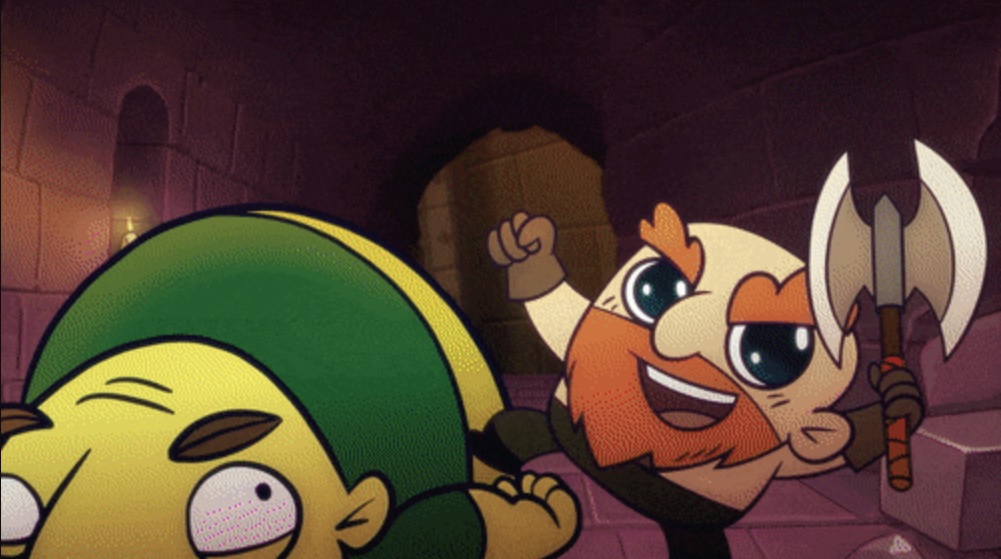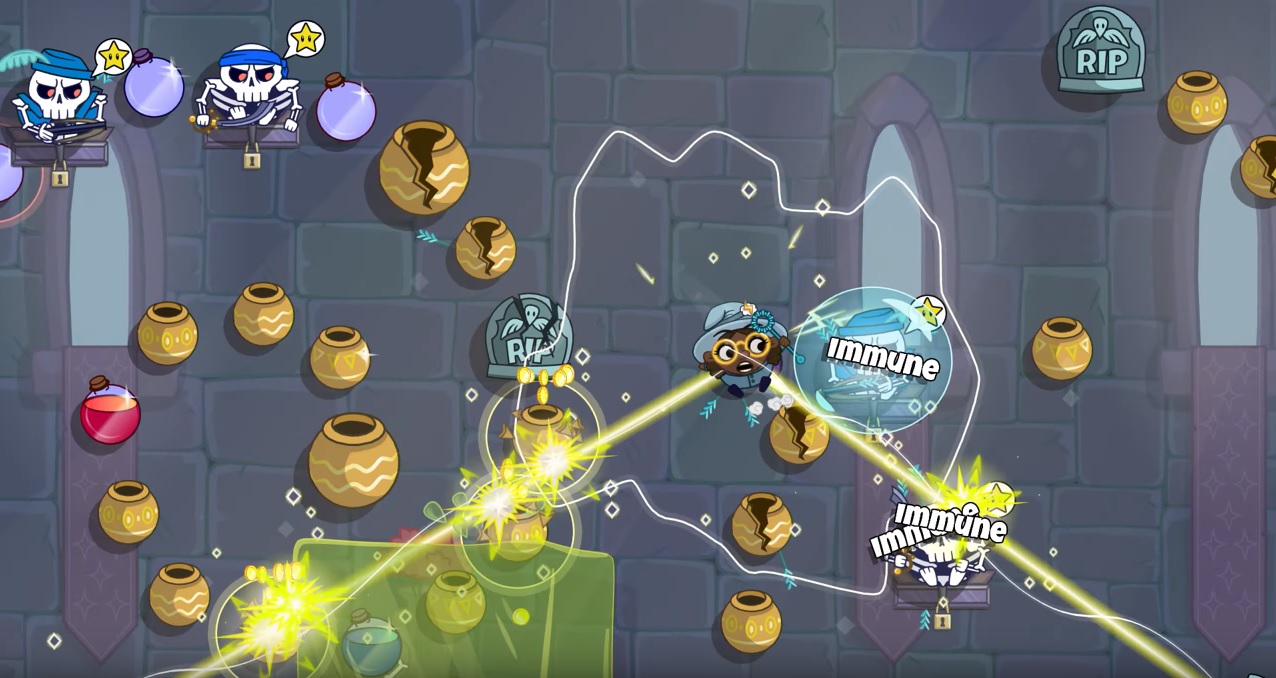Medieval, roguelike Peggle is the perfect distraction from a global crisis
Roundguard brings cheerfulness to a genre defined by suffering.

PC Gamer was a huge Peggle proponent back in '07 when a casual-but-compelling desktop arcade game felt like a bold new idea. The unironic joy of unicorns, pinball, rainbows, and a skateboarding gopher who shouts "Radical!" whenever you cross a points threshold may have had a hand in getting us through that decade's financial crisis, honestly.
So this is good timing for the release of Roundguard, a roguelike take on Peggle from Seattle-based developer Wonderbelly Games (the same city PopCap hails from). Flinging a tiny, smiling barbarian (ballbarian?) face-first into a bunch of treasure chests and goblins is good therapy for this worrisome moment we're living in.
Roundguard is deeper than Peggle, though. Other than that low-level pleasure of a single click producing a pinballing shower of coins, you've gotta worry about earning XP and gold, which items and abilities to equip, and grappling with what I'll generously refer to as a combat system. You're not just hurling a pinball at a fantasy-themed board, you're pointing your bouncy adventurer at enemies with attack and health stats who can inflict status effects and alter the board around them.
Roundguard's skeleton archers are a good example: they don't deal melee damage when your character collides with them, but they spit out arrows whenever you're within range. The worst thing that can happen is getting stuck between pegs adjacent to one of these undead archers because they'll just keep taking pot shots, racking up free damage. And if one of their arrows strikes a health potion, they steal-heal it from you. Jerks. In later stages, orc shamans ping-pong buffs around the board that can be intercepted. Shoot into a gelatinous cube and your hero will slide downward like a marble in pudding.
Sometimes I can just brute-force my way through these enemies, but I like that Roundguard invites me to think carefully about which pegs to clear first in order to maximize how much HP I have, because HP is persistent between stages. I have to make a similar consideration when pathing between levels. Like many roguelikes, each act of Roundguard is a maze of connected, individual boards, and in order to move from one to the next you need to flick your character into a corresponding pot at the bottom of the stage. I've had turns where I wasn't able to advance to a valuable treasure room because I hadn't cleared a cluster of pots that was blocking my path. It's cool that otherwise simple shots like this often feel more complicated.
There are bosses, too, each with their own trope. The Alchemist hurls random buffs and debuffs to random quadrants, so he might shield you (half damage) or poison you (auto damage) at the start of the turn, changing your plan. The whole experience benefits from the roguelike reward structure, where picking up armor that blocks all poison damage or a new left-click ability that detonates anything in a small radius are substantial pieces of power that alter your playstyle. When you die, you randomly roll a piece of equipment to bring into your next run based on how much gold you accumulated.

A few hours in, maybe the best thing I can say about Roundguard is that I haven't beaten Act Two yet. Like some of my favorite roguelikes, death can come suddenly: one unexpected bounce and suddenly I've hit five spider eggs, triggering 35 poison damage per turn. Enemies' size and shape also doesn't always correspond with their damage output, sometimes making it hard to gauge whether it's a good idea to collide with a spider or a dark elf. But the cheerful presentation and sound design, like Peggle's, softens the pressure of every turn. I didn't know I needed to fire a smiling little superball barbarian out of a ballista until I did.
Keep up to date with the most important stories and the best deals, as picked by the PC Gamer team.

Evan's a hardcore FPS enthusiast who joined PC Gamer in 2008. After an era spent publishing reviews, news, and cover features, he now oversees editorial operations for PC Gamer worldwide, including setting policy, training, and editing stories written by the wider team. His most-played FPSes are CS:GO, Team Fortress 2, Team Fortress Classic, Rainbow Six Siege, and Arma 2. His first multiplayer FPS was Quake 2, played on serial LAN in his uncle's basement, the ideal conditions for instilling a lifelong fondness for fragging. Evan also leads production of the PC Gaming Show, the annual E3 showcase event dedicated to PC gaming.

